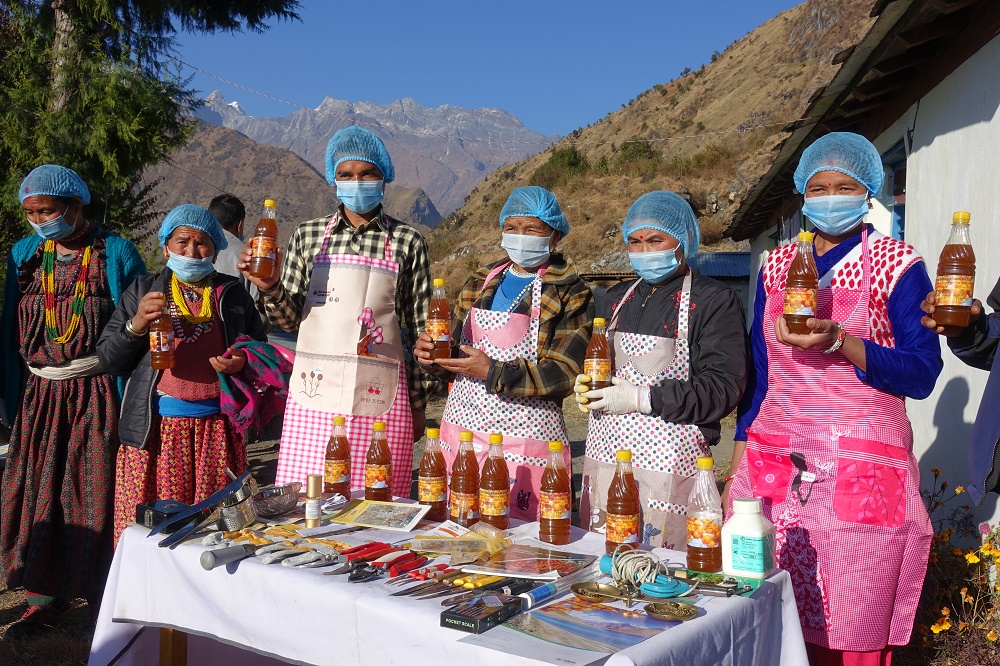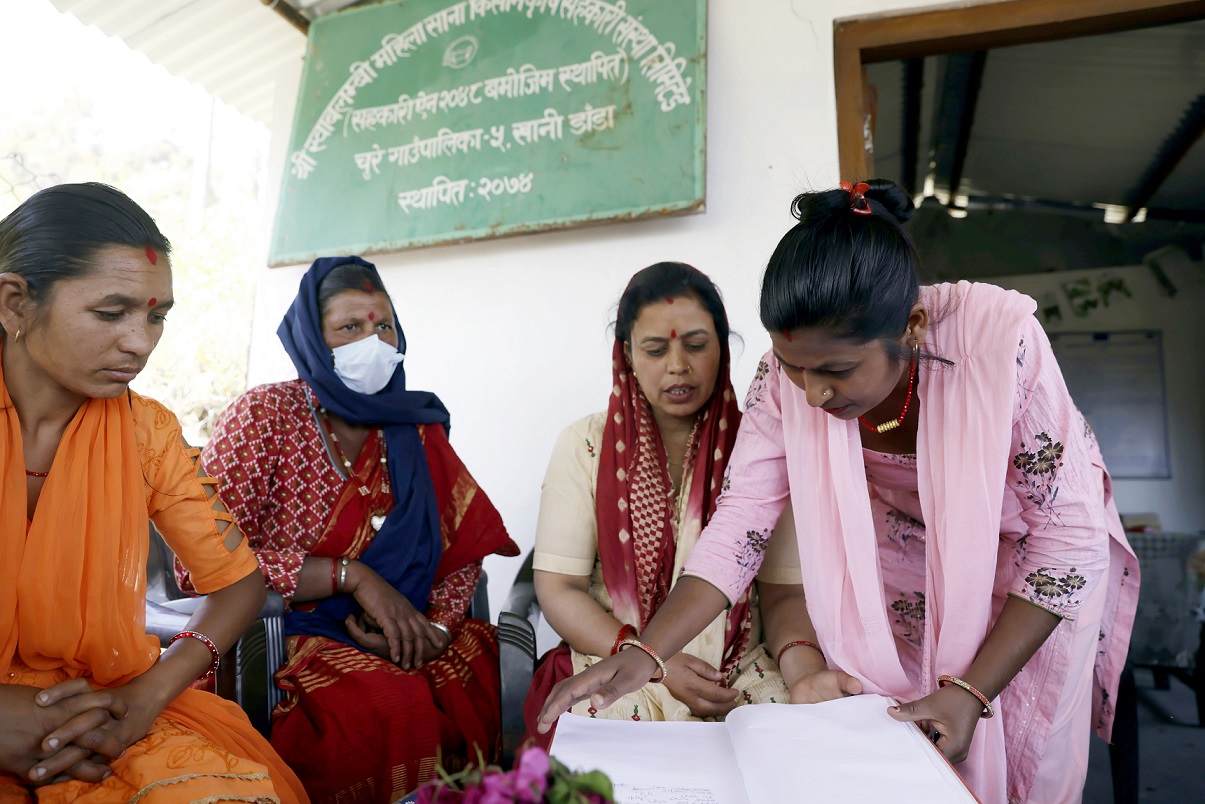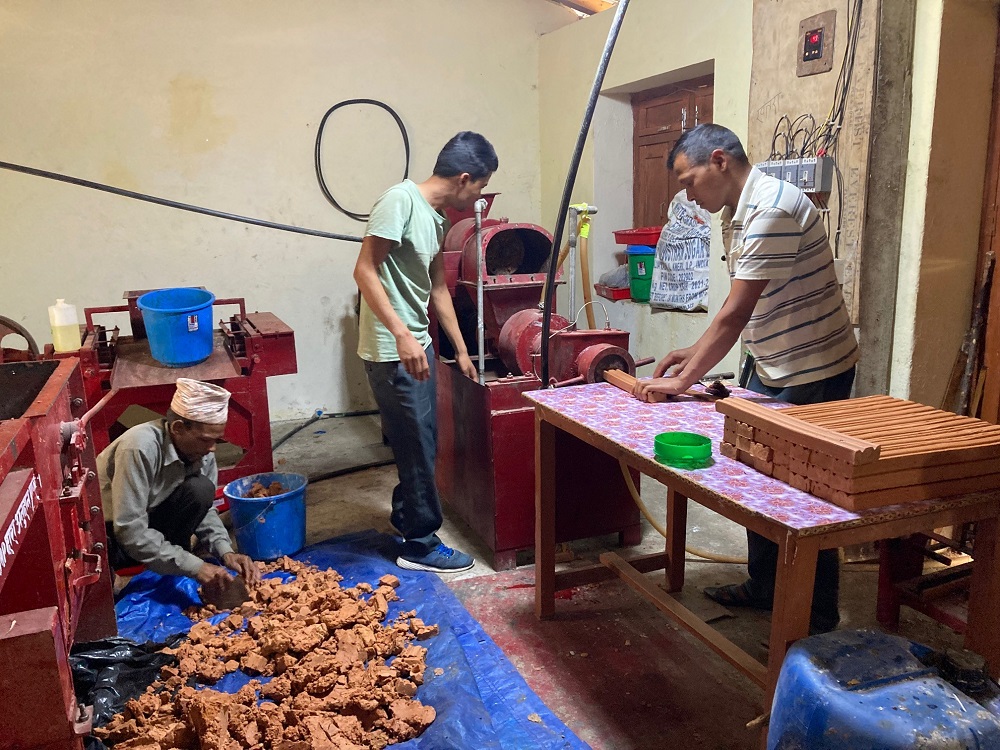Tangerines, soap and sea buckthorn juice – development cooperation boosts rural businesses in Nepal
The Rural Village Water Resources Management Project in the Far West region of Nepal ends this autumn. It succeeded in its goal of reducing poverty. In addition to improving access to water, the development cooperation project promoted livelihoods and rural business development.

The Far West is a remote mountainous region where there is very little industry that could give people jobs. Cooperatives are a low-threshold start to business activities.
By improving the operations of local cooperatives, the project succeeded in raising incomes and in increasing the circulation of money in the local economy. Around 164,000 locals benefitted from the support channelled to cooperatives in the project’s Phase III from 2016 to 2022. The project gave the cooperatives expert assistance and material support, among other forms of support.
The project strengthened agricultural value chains. Value chain is the process of a product from production and processing to a sellable item.
The Rural Village Water Resources Management Project focused on five value chains: citrus fruit, cardamom, ginger, vegetables and Indian butter tree (Chiuri). The project helped 23,000 people to develop value chains.
“The locals are proud of their region’s products, and they have learned to utilise them better both in their own use and as sources of income. Women in particular have gained a stronger economic position since they are now less dependent on remittances from men working away from home,” says Juho Haapala, Project Specialist at FCG.
Women’s cooperative sets an example for others
The Swabalambi women farmers’ cooperative in the Kailali District can be proud of its achievements. It started its operations in summer 2017 and has no more than 500 members. The cooperative has been so successful that it has been able take on two employees.

The cooperative has only women as members. Women from the most disadvantaged groups, such as Dalits and indigenous peoples, are also involved in the cooperative.
“At first, some men believed that women would not be able to run a cooperative,” says Santhi Bohara, Director of the cooperative.
The cooperative improves crop yield and creates opportunities to earn an income. It is also a bank that grants loans to its members for developing and expanding their operations. The women grow and sell tangerine and ginger, among other products.
The women's cooperative is currently developing a value chain for citrus fruit. It works with the municipality, other farmers in the region and with retailers and wholesalers. The cooperative is planning to set up a marketplace on the slope below its storehouse. The site has already been levelled out for its future use as a trading place.
“The farmers have multiplied their income. Their whole mentality towards working has been transformed,” says Radha Bhat, who is responsible for administration in the cooperative.
The Rural Village Water Resources Management Project helped the cooperative to build a small storehouse and to buy a laptop and a printer.
Locally sourced soap instead of imported products
In the city of Marma, a cooperative with 200 members is making soap and laundry tablets from the nuts of the Indian butter tree, Chiuri.
Before, there was no industrial production of soap in the region and all the soap on sale came from India. Laundry tablets have turned out to be the most commercially viable product.

The cooperative buys Chiuri nuts from locals who have been trained in collecting the nuts and grinds them. They then add ghee to the mix and squeeze the soap mix mechanically into bars and tablets of soap. Surplus ingredients can be used as fertiliser.
The cooperative is developing its value chain by product development and marketing and by finding new buyers and larger markets.
“It has been a big change. Before, Chiuri was used only locally by families themselves. Chiuri grows naturally in the region and gives high yields, but before the locals were not able to make much commercial use out of it. The same applies to sea buckthorn,” says Juho Haapala.
“The project has helped local cooperatives to start large-scale and organised business activities that benefit all the people in the region.”
Rural Village Water Resources Management Project (RVWRMP III), Phase III, 2016–2022:
- Continuation of the project that started in 2006
- Region: Karnali and Sudurpaschim
- EU: EUR 20 million
- Finland: EUR 15 million
- Nepal: EUR 15 million
- Local municipalities in Nepal: EUR 8.7 million
- Beneficiaries: EUR 10.9 million; mostly labour input
- Project implemented by: FCG Finnish Consulting Group
Hanna Päivärinta
The writer works as Communications Coordinator at the Department for Communications of the Ministry for Foreign Affairs.
